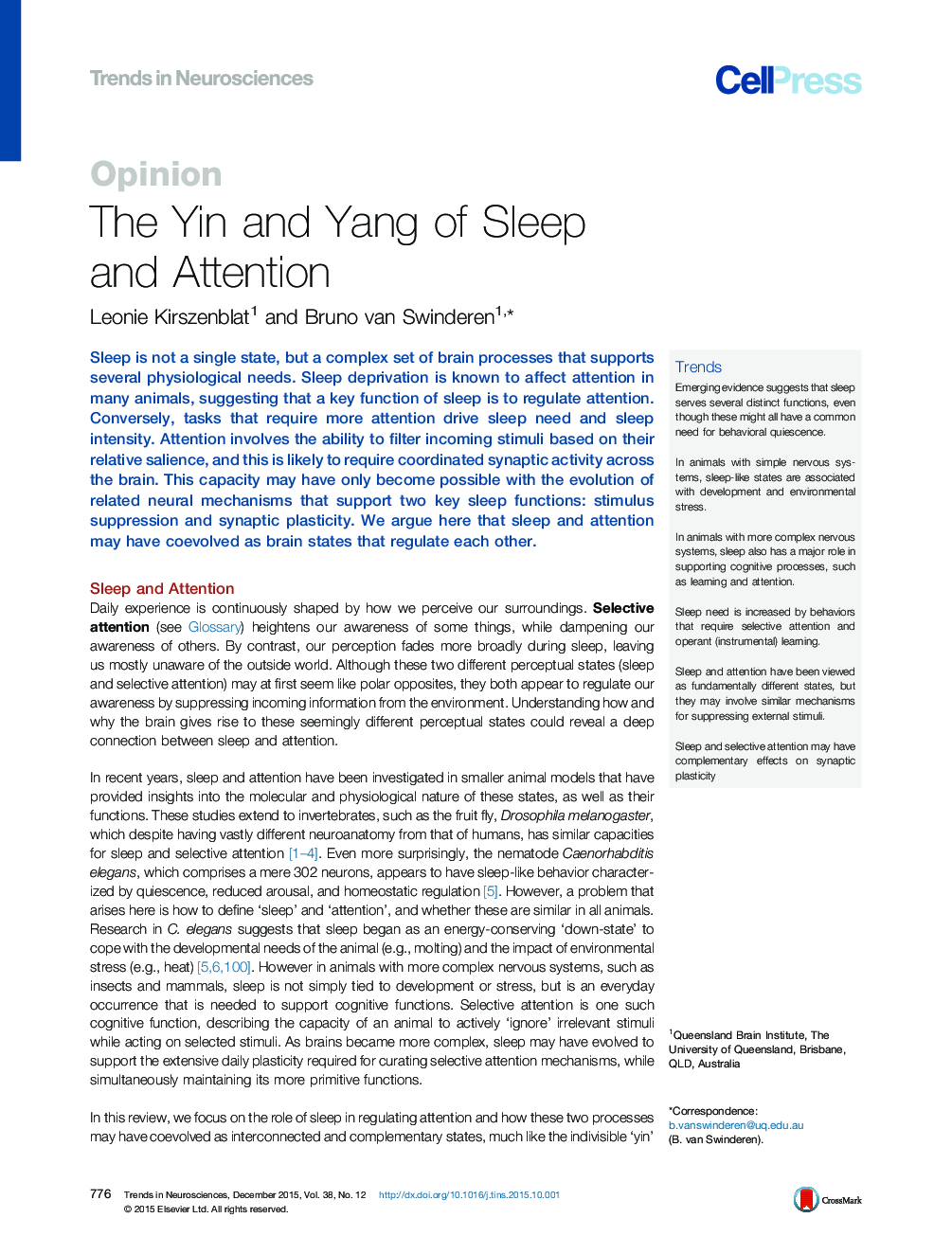| Article ID | Journal | Published Year | Pages | File Type |
|---|---|---|---|---|
| 4354209 | Trends in Neurosciences | 2015 | 11 Pages |
Sleep is not a single state, but a complex set of brain processes that supports several physiological needs. Sleep deprivation is known to affect attention in many animals, suggesting that a key function of sleep is to regulate attention. Conversely, tasks that require more attention drive sleep need and sleep intensity. Attention involves the ability to filter incoming stimuli based on their relative salience, and this is likely to require coordinated synaptic activity across the brain. This capacity may have only become possible with the evolution of related neural mechanisms that support two key sleep functions: stimulus suppression and synaptic plasticity. We argue here that sleep and attention may have coevolved as brain states that regulate each other.
TrendsEmerging evidence suggests that sleep serves several distinct functions, even though these might all have a common need for behavioral quiescence.In animals with simple nervous systems, sleep-like states are associated with development and environmental stress.In animals with more complex nervous systems, sleep also has a major role in supporting cognitive processes, such as learning and attention.Sleep need is increased by behaviors that require selective attention and operant (instrumental) learning.Sleep and attention have been viewed as fundamentally different states, but they may involve similar mechanisms for suppressing external stimuli.Sleep and selective attention may have complementary effects on synaptic plasticity
